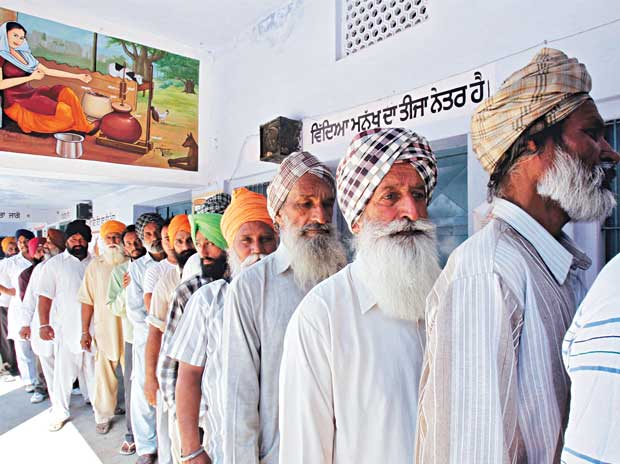How caste and religion influence selection of political leaders in India
- Details
- Category: Indian Politics
- Last Updated: Wednesday, 18 July 2018 11:15
How caste and religion influence selection of political leaders in India
Political Services Download latest voter list Booth wise

A majority of Indians prefer political leaders from their own caste, tribe or religion, according to a 2018 study, indicating how identity politics plays a significant role in state and general elections. This was especially so among non-literates across caste and religious groups.
Across eight states–Andhra Pradesh, Bihar, Madhya Pradesh, Maharashtra, Rajasthan, Jharkhand, Chhattisgarh and Telangana–55% of Indians would prefer a political leader from their own caste and religion, found the study, ‘Politics And Society Between Elections 2018’, carried out by the Azim Premji University (APU) and Lokniti (Centre for the Study of Developing Societies [CSDS]) in 22 assembly constituencies with 16,680 respondents.
No more than 10% would actively choose a political leader from a different caste or religion (9%). A little more than a third of those surveyed said caste (35%) or religion (37%) of their political leader would not matter.
“There is a distrust of leaders from outside the community across all classes, and all caste-class intersections,” the study, accessed by IndiaSpend, said.
“The upper castes in general express the lowest trust in leaders from outside their own.”
Indians with higher education more willing to have leaders of different caste/religion
Caste and religious identity of a political candidate were less likely to make a difference to college-educated persons (47%) compared to non-literates (63%) and those educated up to the school-level (56%), across social groups, according to the study.
For example, while upper castes in general expressed the “lowest trust in leaders from outside their own”, according to the study, this was more so among non-literates (68%) compared to those with schooling (56%) and with college-level education (46%).
Among those educated at the college-level, adivasis or scheduled tribes (as they are constitutionally called), displayed a higher preference for a leader from their own social group (60%). This is six percentage-points lower–lowest among all social groups–than the preference expressed by non-literate adivasis (66%).
SOURCE:BUSINESS STANDARD


